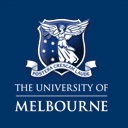Full description
The Classics and Archaeology Collection consists of nearly two hundred Classical pieces as well as significant Cypriot and Middle Eastern collections, comprising a total of approximately 2,400 objects. It includes papyri, coins, vases, lamps, figurines, manuscripts, sculptures, weapons, tools, scarabs, seals, jewellery, artefacts, bones, inscriptions, ceramics, bronze, stone, gold, silver, lead, iron, ivory, glass and paper. The collection also includes a number of fine Athenian vases, European medieval and Eastern manuscripts and early books. A number of Egyptian objects are also included within the collection, along with objects from the Near Eastern Studies collection, one hundred and ten plaster casts and reproductions, and a collection of Cypriot pottery. The Middle Eastern Collection includes a wide variety of manuscripts, pottery, bronzes, coins and plaster casts. Some items were purchased to meet specific research or teaching needs, such as the collection of over one hundred manuscripts and early books, mainly in Arabic or Persian, built up by John Martyn in the 1960s primarily for the teaching of palaeography. Other items, such as a set of eighteen objects from a Phoenician shipwreck from Mr Joe Huber and a group of sixteen Egyptian objects from Mr Peter Chaldjian, have been donated to the University. The Middle Eastern Collections includes a set of bronzes from Luristan, three ivories from Nimrud and twenty-five vases from Madrash. Subjects
User Contributed Tags
Login to tag this record with meaningful keywords to make it easier to discover
Identifiers


 See more Cultures and Communities data
See more Cultures and Communities data